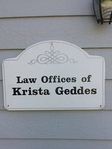Filter by
What a Civil Rights Lawyer Can Do for You
A civil rights lawyer focuses on protecting individuals whose constitutional rights have been violated by government authorities, employers, or private organizations. These lawyers specialize in cases involving discrimination, police misconduct, freedom of speech, and other fundamental rights guaranteed under the U.S. Constitution and civil rights laws, such as the Civil Rights Act, Americans with Disabilities Act (ADA), and the Fair Housing Act.
Whether you've been discriminated against due to race, gender, religion, disability, or other protected characteristics, or you believe your civil rights have been violated by a government entity, a civil rights lawyer can help you seek justice, hold wrongdoers accountable, and secure compensation for any harm you've suffered.
When Should I Hire a Civil Rights Lawyer?
You should hire a civil rights lawyer when your constitutional rights or other protected rights have been violated, and you need legal assistance to seek justice. Some key situations in which you may need a civil rights lawyer include:
- Employment discrimination: If you have faced discrimination at work based on race, gender, age, religion, national origin, or disability, a civil rights lawyer can help you file claims under laws such as Title VII of the Civil Rights Act or the Americans with Disabilities Act (ADA).
- Police misconduct or brutality: If you were the victim of police brutality, unlawful arrest, racial profiling, or other forms of misconduct, a lawyer can help you file a lawsuit for violations of your Fourth and Fourteenth Amendment rights.
- Freedom of speech or assembly violations: If your First Amendment rights to free speech or peaceful assembly have been restricted by the government, a civil rights lawyer can represent you in challenging the violation.
- Housing discrimination: If you’ve been denied housing or faced unfair treatment due to your race, ethnicity, gender, or disability, a lawyer can help you file a complaint under the Fair Housing Act.
- Voter rights violations: If you believe your right to vote has been unfairly suppressed or you’ve faced discrimination in the voting process, a civil rights lawyer can help you fight for your rights.
- Disability rights violations: If you’ve faced discrimination in accessing public spaces, employment, or services due to a disability, a lawyer can help enforce your rights under the ADA.
- LGBTQ+ rights violations: If you've experienced discrimination based on sexual orientation or gender identity in employment, housing, or public services, a civil rights lawyer can help you pursue legal remedies.
Hiring a lawyer early on can help you understand your legal options and build a strong case to protect your rights.
What Does a Civil Rights Lawyer Do?
A civil rights lawyer provides legal representation and advocacy to individuals whose rights have been violated. Their work can include:
- Filing lawsuits: A civil rights lawyer can represent you in court by filing lawsuits against individuals, businesses, or government entities that violated your rights.
- Advocating for policy changes: Civil rights lawyers often engage in advocacy work, pushing for reforms to laws and policies that infringe upon people's rights.
- Representing clients in discrimination claims: These lawyers help clients file claims with federal or state agencies, such as the Equal Employment Opportunity Commission (EEOC) or the U.S. Department of Housing and Urban Development (HUD).
- Negotiating settlements: In many cases, civil rights lawyers work to negotiate settlements for their clients before a case goes to trial, securing compensation for damages such as lost wages, emotional distress, or legal fees.
- Defending freedom of expression: Lawyers may represent clients whose rights to free speech, assembly, or protest were violated by government restrictions or other actions.
- Handling appeals: If your civil rights case has been decided but you wish to appeal the ruling, a civil rights lawyer can help you through the appeals process.
How Are Civil Rights Lawyers Paid?
Civil rights lawyers typically charge for their services based on the complexity of the case and the type of legal work involved. Common payment structures include:
- Contingency fee: Many civil rights lawyers work on a contingency basis, meaning they only get paid if they win your case. Their fee is typically a percentage (usually 25% to 40%) of the settlement or damages awarded.
- Hourly rate: For cases that require extensive legal research or litigation, some lawyers charge by the hour, with rates ranging from $150 to $500 or more, depending on the lawyer’s experience and location.
- Pro bono or sliding scale: Some civil rights lawyers or organizations may work on a pro bono (free) basis or use a sliding fee scale for clients who cannot afford typical legal fees.
- Flat fee: In specific cases, a lawyer may charge a flat fee for services like drafting legal documents or filing a complaint.
It’s important to clarify the fee structure during your initial consultation to avoid unexpected costs.
How Much Does a Civil Rights Lawyer Cost?
The cost of hiring a civil rights lawyer varies depending on the complexity of the case, the lawyer’s experience, and the type of legal issue. General cost estimates include:
- Contingency fee cases: For cases taken on a contingency basis, the lawyer’s fee will typically range from 25% to 40% of the settlement or judgment awarded.
- Hourly rates: Many civil rights lawyers charge hourly rates ranging from $150 to $500 or more, depending on their experience and the complexity of the case.
- Flat fees: For straightforward legal tasks, such as filing a complaint with a government agency or drafting legal documents, flat fees may range from $1,000 to $5,000.
- Pro bono work: Some civil rights lawyers or nonprofit organizations provide free legal representation in certain cases involving important constitutional or civil rights issues.
Be sure to ask for a detailed estimate of costs during your consultation to understand the financial commitment involved.
Top Questions to Ask a Civil Rights Lawyer
Before hiring a civil rights lawyer, it’s important to ask the right questions to ensure they are the best fit for your case. Key questions to ask include:
-
What experience do you have with civil rights cases?
Ensure the lawyer has experience handling cases similar to yours, whether it’s employment discrimination, police misconduct, or First Amendment violations. -
How do you charge for your services?
Clarify whether the lawyer works on a contingency fee basis, hourly rate, or flat fee, and ask for an estimate of the total cost of your case. -
What is the likelihood of success for my case?
Ask the lawyer to provide an honest assessment of your case, including the strengths, weaknesses, and potential outcomes. -
Have you handled cases like mine before?
Inquire about the lawyer’s experience in cases with similar facts and legal issues. -
What is the timeline for resolving my case?
While exact timelines can vary, ask for an estimate of how long your case may take, from filing to resolution. -
Will you handle my case personally?
In larger firms, junior attorneys or paralegals may work on parts of your case, so it’s important to know who will handle your legal matter directly.
How to Check the Credibility of a Civil Rights Lawyer
To ensure you are hiring a reputable civil rights lawyer, take the following steps to verify their credentials and track record:
- Verify their state bar license: Check with your state bar association to confirm that the lawyer is licensed to practice and has no disciplinary actions against them.
- Look for specific civil rights experience: Review the lawyer’s website or professional profile to ensure they specialize in civil rights law and have a history of handling cases like yours.
- Read client reviews and testimonials: Look for client reviews on platforms like Avvo, Martindale-Hubbell, or Google to see what previous clients have said about the lawyer’s professionalism and success rate.
- Ask for references: A credible lawyer should be able to provide references from past clients who can speak to their experience with civil rights cases.
- Check for advocacy or nonprofit work: Lawyers involved with civil rights organizations, such as the ACLU or NAACP Legal Defense Fund, may have a strong reputation in the civil rights legal community.
What Should I Prepare for My First Consultation?
To get the most out of your first consultation with a civil rights lawyer, it’s important to come prepared with relevant documents and information. Here’s what you should bring:
- A detailed account of the violation: Provide a written summary of the events, including dates, times, and any people involved in the violation of your rights.
- Documentation and evidence: Bring any supporting documentation, such as emails, letters, photos, or video footage that may help prove the violation of your rights.
- Records of complaints or reports: If you’ve filed complaints with a government agency or reported the violation, bring copies of those documents.
- List of questions: Write down any questions you have about the legal process, costs, and potential outcomes of your case.
- Information on damages or harm: Be prepared to discuss the harm you’ve suffered due to the violation, such as emotional distress, financial loss, or physical injury.
By preparing thoroughly for your consultation, you can help the lawyer assess your case more effectively and get the best possible legal advice on how to proceed.








